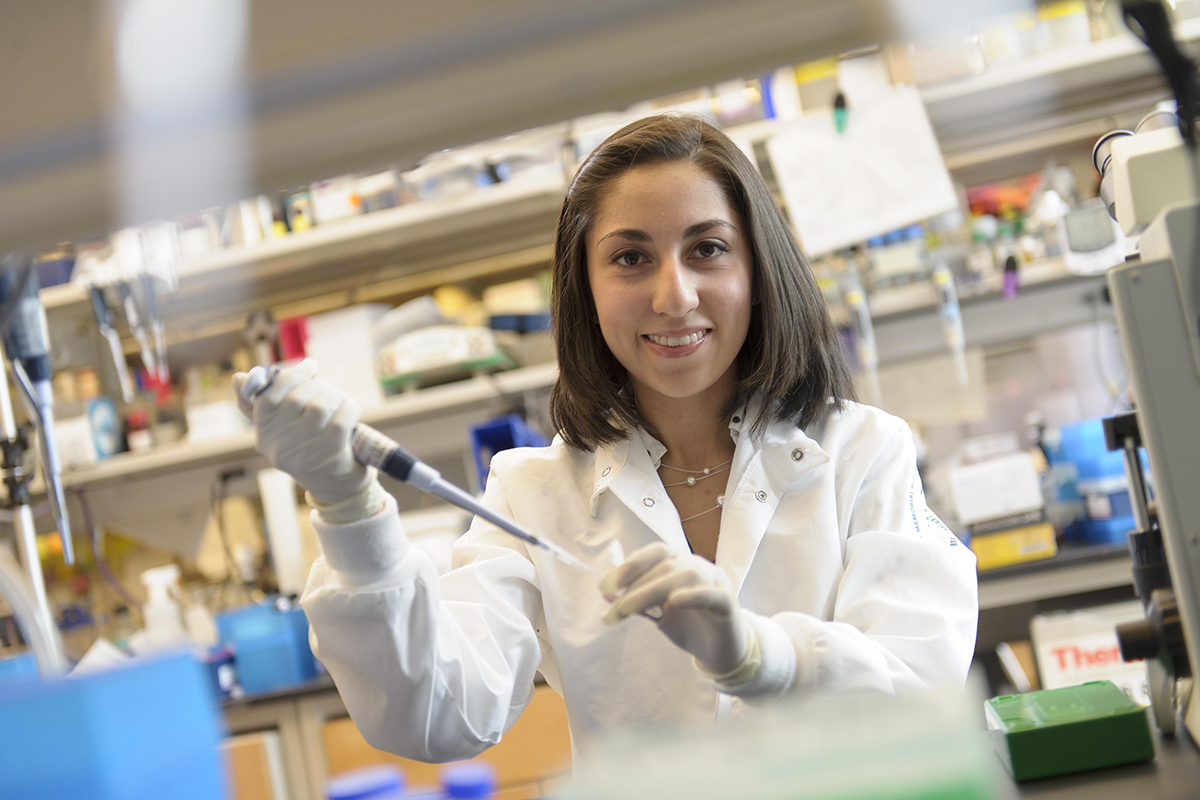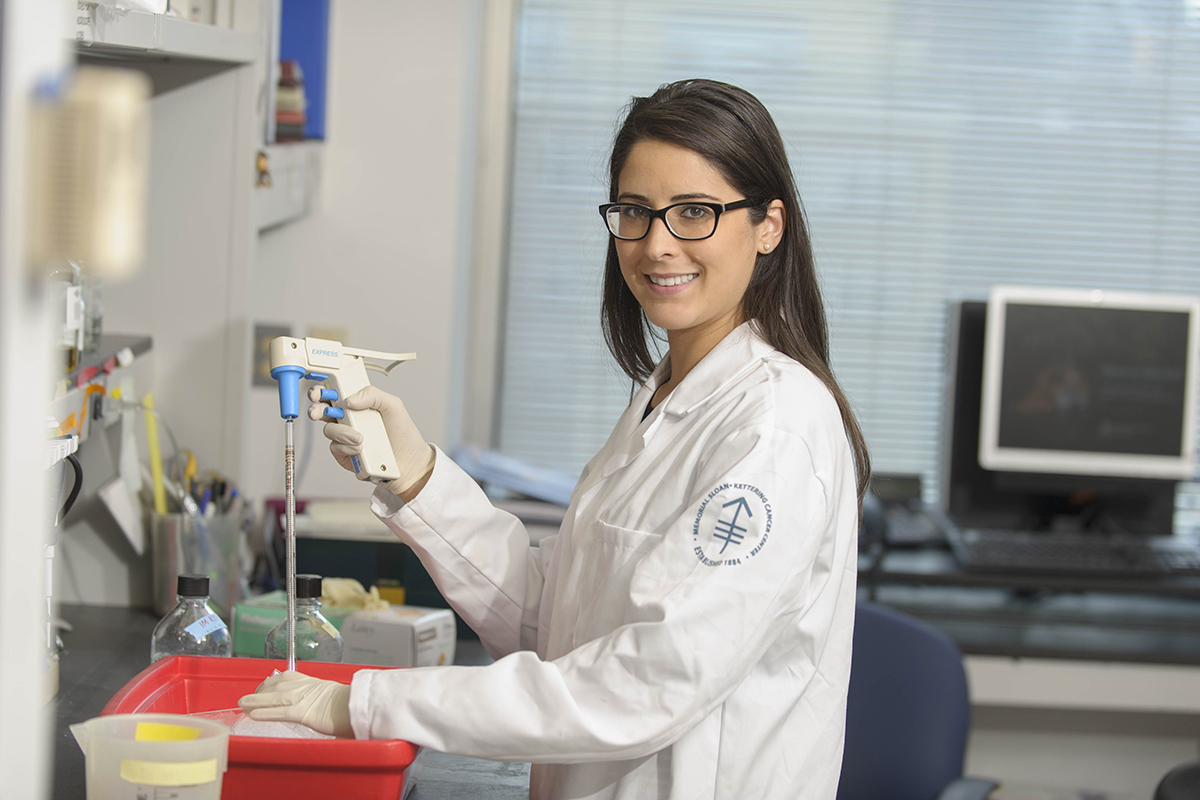Three students at the Louis V. Gerstner, Jr. Graduate School of Biomedical Sciences have successfully defended their dissertations. As part of Memorial Sloan Kettering’s 36th annual academic convocation and the school’s fourth annual commencement on May 21, GSK will award PhD degrees to Jenny Karo, Berenice Ortiz Thompson, and Jessica Rios-Esteves.
The graduation of these students brings the number of graduates of the school to 25.
Jenny Karo recently completed her dissertation project in the laboratory of Joseph Sun, studying natural killer (NK) cells, which are the body’s first line of defense against pathogen invasion.

Berenice Ortiz Thompson conducted her graduate research in the laboratory of Timothy Chan.

PTPRD and CDKN2A are tumor-suppressor genes that are frequently inactivated together in several tumor types. Despite their frequent inactivation, it was unknown whether loss of PTPRD promotes tumorigenesis in vivo. Berenice studied the cooperative effects of PTPRD and CDKN2A loss using mouse models for glioma and spontaneous tumors. She demonstrated that heterozygous loss of PTPRD cooperates with homozygous loss of CDKN2A to accelerate both gliomagenesis and spontaneous tumorigenesis. Loss of the PTPRD phosphatase led to accumulation of phosphorylated STAT3 and may promote tumorigenesis by altering the local immune response.
Since defending her thesis, Berenice has become an associate medical writer at Chameleon Communications International in New York City.
Working in the laboratory of Marilyn Resh, Jessica Rios-Esteves focused on Wnt proteins, which play an important role during development and cancer.

Her thesis project focused on understanding how Wnt proteins become modified with fatty acid inside the cell. From previous work, it was not clear how this process was regulated. She undertook the challenging task of uncovering the mechanism by which the enzyme Porcupine recognizes and transfers fatty acids to Wnt proteins. Her analysis defines the enzyme’s requirements for fatty acid substrates and shows that it transfers monounsaturated fatty acids (MUFAs) but not saturated fatty acids onto Wnt. In the cell, MUFAs are produced by the enzyme Stearoyl CoA Desaturase (SCD); she showed that blocking SCD activity prevents Wnt acylation, secretion and signaling activity. These findings place SCD as a novel intermediary during Wnt biogenesis and establish an unprecedented connection between Wnt signaling and fatty acid metabolism.
Jessica is currently a process development engineer at Vetter Development Services in Chicago.
